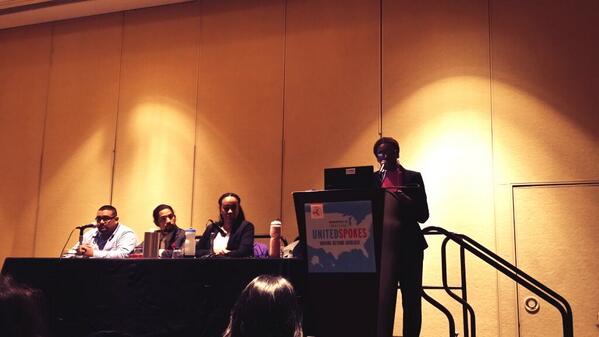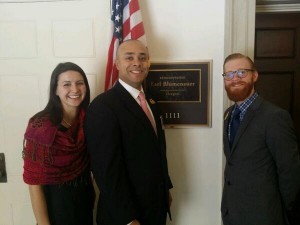Reflections from The National Bike Summit
The 2014 National Bike Summit held in Washington DC was a chance to join forces with bike advocates from all over the country. It was a mix of capacity building and good old fashioned lobbying with a little bit of fun sprinkled in. This was my first time at the National Bike Summit and it was well worth the trip.
First and foremost, the Summit is about engaging with our elected officials with one voice, creating a collective impact on active transportation legislation. The nice thing about being part of the Oregon delegation is that many of our legislators are the ones drafting the legislation. Also, with only five people to visit, we didn’t have to do a lot of running around. Can you imagine what it must be like to be a national bike advocate from Texas? Or how many visits you would have to make if you were representing California? It’s 53. I checked.
Lobbying was only a third of the Summit. Building on its commitment to build a more inclusive cycling movement, the Summit is preceded by a Women’s Forum. This day-long event highlighted inspiring female leaders from different sectors and backgrounds from around the country. We heard about the power of storytelling and how to color outside the lines in forums led completely by women. It was a powerful experience for all in attendance.
In tandem there were some Portland all-stars participating in a Pop-Up-Shop highlighting their work. Elly Blue had a table full of publications from Elly Blue Publishing, Stephanie Routh was in attendance with her book, How to Move by Bike, and Lilian Karabaic wowed audiences with her take on how to cultivate the “All Powerful Bike Lobby”. Portland was definitely in full effect.

As we transitioned from the Women’s Bike Forum to the rest of the Summit, I realized that it was going to be a tough act to follow. We went from having near complete female leadership to the exact opposite on the main stage of The National Bike Summit, a stark contrast that was noted by many.
The breakout sessions during the main Summit were phenomenal, however. In particular, the work to empower communities through bicycling in Los Angeles was inspiring. In a city known for its car culture, advocates are innovating new strategies for bicycle promotion by drawing on LA’s diversity. Check out the community centered strategies employed by: T.R.U.S.T. South LA, Multicultural Communities for Mobility, and the LA County Bicycle Coalition. The only trouble was that they we’re presenting to only 1/6th of the assembled delegates.

The challenge and opportunity for the Summit next year lies in the ability of organizers to create separate spaces for engagement around issues that impact women and historically underrepresented populations and find ways to infuse every aspect of the Summit with those same voices and perspectives. Based on what I’ve heard from long-time attendees, the Summit has been moving towards building a more inclusive program for years now and that this was the best Summit ever. I’m looking forward to next year!
